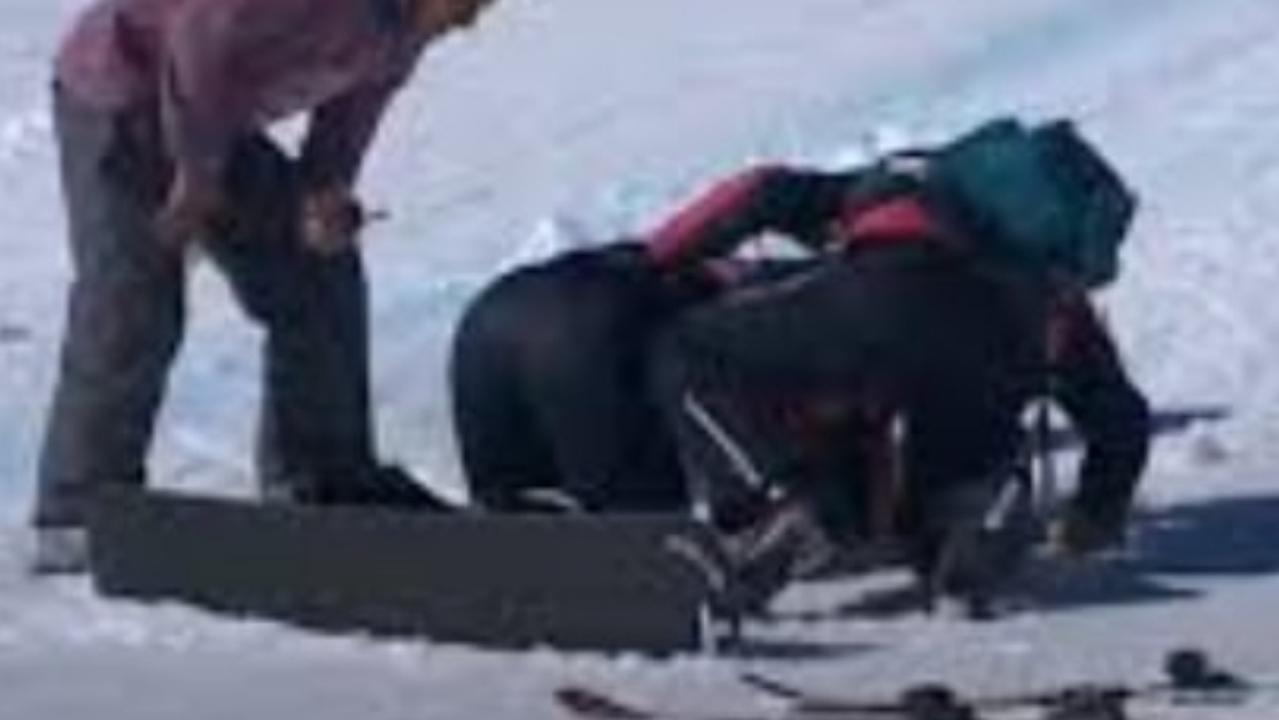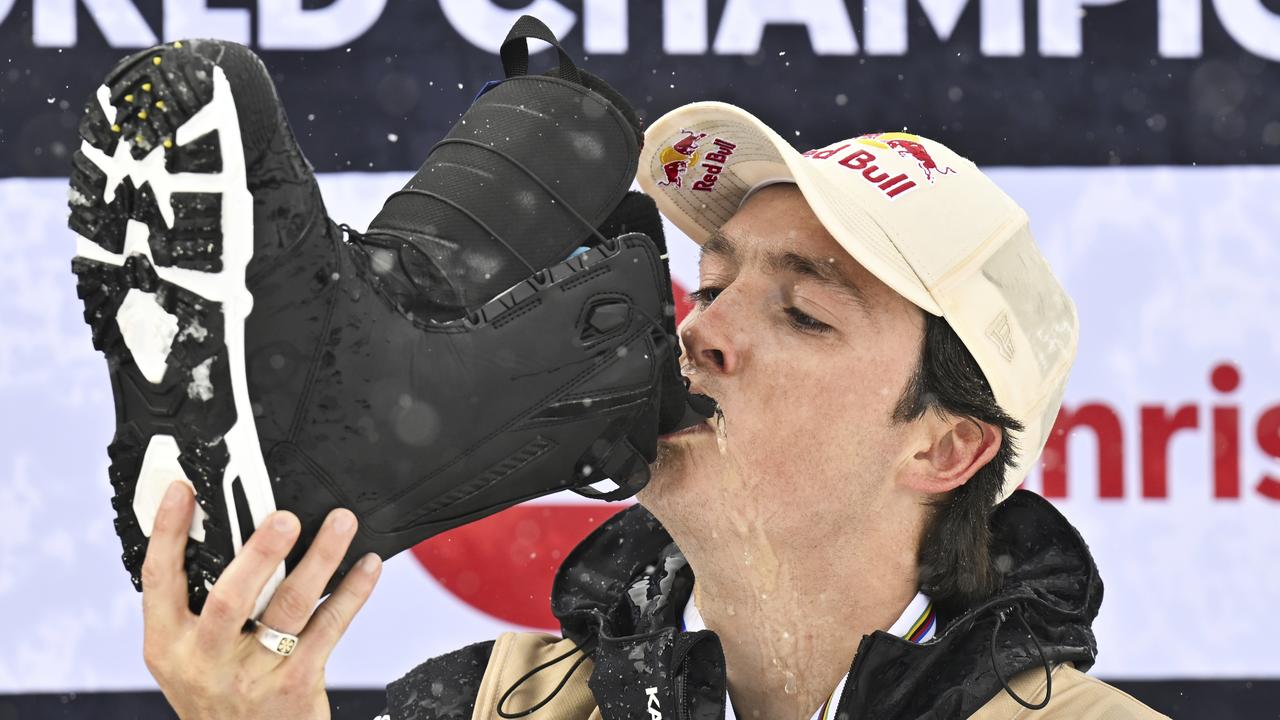Russia‘s Kamila Valieva doping scandal: US skaters 11th hour bid for Olympic silver medals denied
A pair of US figure skaters have had an 11th hour court bid to receive their Olympic silver medals denied due to the Kamila Valieva doping scandal.
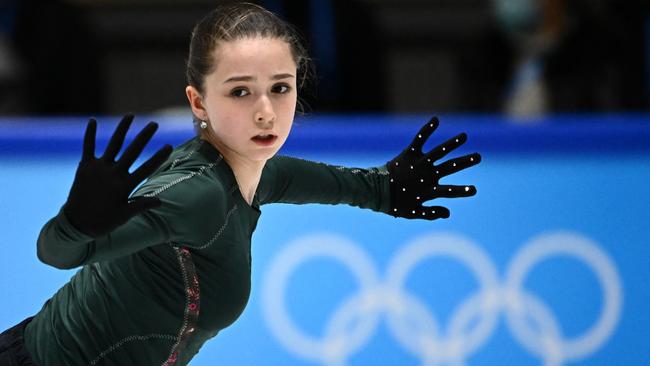
Winter Olympics
Don't miss out on the headlines from Winter Olympics. Followed categories will be added to My News.
American figure skaters failed on Saturday in an 11th-hour court bid to receive their Beijing Olympics team event silver medals after they were held back because of the Kamila Valieva doping scandal.
The skaters challenged the International Olympic Committee’s decision that the medals cannot be awarded until the 15-year-old Russian’s case has been investigated.
But the Court of Arbitration for Sport (CAS) said in a statement that it had “decided to dismiss the application” after a hastily-arranged hearing 24 hours before Sunday’s closing ceremony.
“Consequently, the decision of the IOC Executive Board... not to hold the medal ceremony for the figure skating team event during the Olympic Winter Games Beijing 2022 stands,” the statement added.
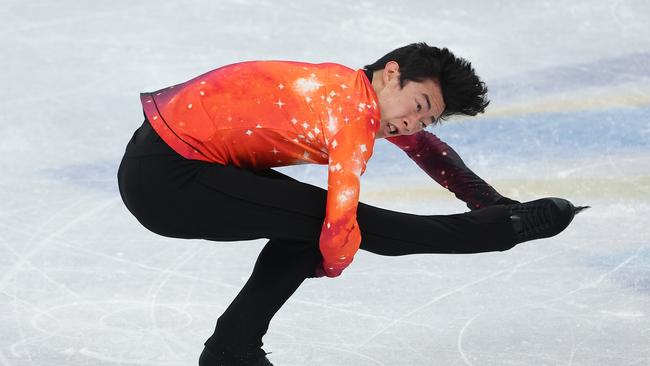
It will be the first time in Olympic history that medals for an event will not be awarded.
The US team members include Nathan Chen, who was also the individual gold medallist.
Valieva played a starring role in helping the Russian Olympic Committee win the team title early in the Beijing Games.
The Americans came second, with Japan third and Canada fourth.
The Russian was informed the day after the conclusion of the team event that she had tested positive in December for a banned substance but CAS ruled she could still take part in the Olympic singles event.
It did not clear her of doping and she faces further investigation. The IOC said it could not award the team event medals until that process has run its course.
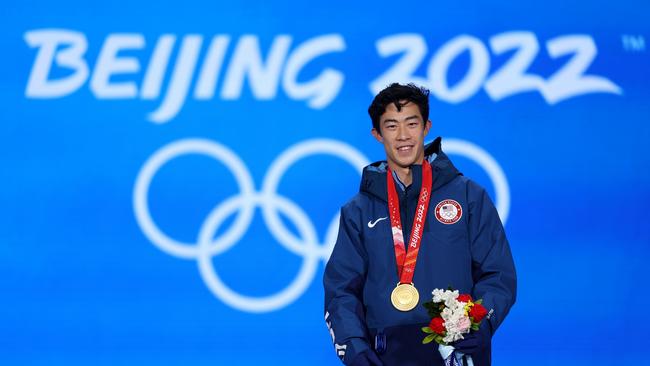
Valieva has returned home to Russia to a hero’s welcome after finishing fourth in the individual event. She had been expected to win the singles title but the controversy surrounding her appeared to take its toll as she fell several times during her routine.
She tested positive for trimetazidine, a drug used to treat angina but which is banned for athletes because it can boost endurance.
Valieva’s predicament has focused attention once more on Russian athletes at Olympic Games and the IOC’s decision to allow Russians supposedly clean of doping to participate.
They are taking part in Beijing under the banner of the Russian Olympic Committee because Russia as a country is serving a two-year ban as punishment for a state-sponsored doping programme.
DOPING SCANDAL COULD CHANGE OLYMPICS FOREVER
Figure skating’s governing body will vote later this year on a proposal to raise the minimum age for senior competitions to 17, it said in an email to AFP Friday.
The sport has been under intense scrutiny at the Beijing Olympics after 15-year-old Russian prodigy Kamila Valieva was allowed to compete despite failing a drugs test before the Games, with her youth cited as a factor in the decision.
Questions around the influence her entourage may have had on Valieva, as well as her public breakdown on Thursday after an error-ridden performance that saw her only place fourth, have led to calls to raise the competition age from its current minimum of 15.
In the email, the International Skating Union (ISU) said it could “confirm that the ISU Council has already decided to include a proposal to increase the competitors’ age limit to 17 across all ISU Figure Skating disciplines”.
It added that it did not normally comment on its agenda ahead of publication, but “the current situation and various media reports” had led it to do so.
The International Olympic Committee told AFP it “welcomes the considerations by ISU”.
The congress will take place from June 6-10, with the suggested change needing a two-thirds majority to pass.
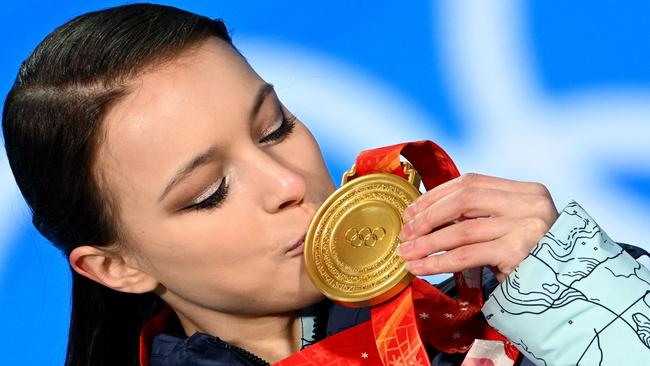
Newly crowned Olympic women’s singles champion Anna Shcherbakova and silver medallist Alexandra Trusova are both 17.
The idea of raising the competition age has been floated before in the sport but has never borne fruit.
But the Valieva case has prompted renewed discussion, with some competitors at the Beijing Games saying they would support a change.
Mariah Bell, at 25 the oldest US woman to compete in Olympic figure skating since 1928, said she “absolutely” believed the age limit should be raised.
Switzerland’s Alexia Paganini agreed that it would provide more “motivation to create a skater who has longevity”, while Natasha McKay of Britain said that injuries might be reduced.
Alysa Liu, the youngest US skater at 16, also said raising the minimum age would not bother her that much.
“I’d just be like ‘OK, I just have to wait a little bit longer’,” she was quoted by USA Today as saying.
TEARFUL RUSSIAN ACCUSED OF PERFORMANCE-ENHANCING COCKTAIL
The Times
The teenage Russian figure skater at the centre of a doping scandal had taken two legal heart-boosting drugs as well as testing positive for a banned substance, it emerged on Tuesday night.
The existence of the three substances were contained in a document submitted to Kamila Valieva’s hearing before the Court of Arbitration for Sport in Beijing on Sunday, which gave the 15-year-old permission to continue competing at the Winter Olympics pending further investigations.
As well as trimetazidine, which is on the list of banned drugs, being found in her sample, she also declared at the time of the test that she was taking two other drugs, L-Carnatine and hypoxen, which are commonly used in Russia to treat heart conditions.
The New York Times first reported the findings and that Valieva’s mother testified that her daughter was taking hypoxen because of heart “variations”.
The declaration of the two legal substances on Valieva’s doping control form has also been verified by The Times.
L-Carnatine was used by Alberto Salazar’s disgraced Nike Oregon Project and is legal only if used below a certain level.
Hypoxen is commonly used in Russia to treat angina and can reduce oxygen consumption and fatigue.
The US Anti-Doping Agency (Usada) asked the World Anti-Doping Agency (Wada) in 2017 to consider banning it after evidence that it was commonly used by Russian athletes.
Travis Tygart, the chief executive of Usada, told The Times: “It’s incredible and raises so many questions. It’s hard to believe someone as young as 15 would have the capability, access and money to take these substances so it raises questions about who was behind this. It seems quite sophisticated.”
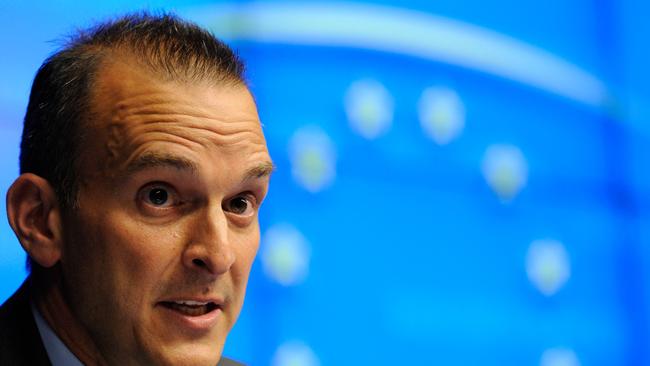
The level of trimetazidine in Valieva’s sample was “hardly trace amounts”, Tygart added, saying: “The three of those used together would seemingly be to try to gain a performance enhancement — such as dealing with shortness of breath or improving stamina.”
Valieva made a tearful return to competition on Tuesday.
Her appearance in the first part of the women’s singles event came hours after claims in Russia that her test result may have been the result of accidentally ingesting medicine used by her grandfather for a heart condition by using the same glass as him on Christmas Day.
Valieva is top of the scoreboard after the short program and is favourite for gold when the event resumes, having already won team gold. If she finishes in the top three there will be no medal ceremony and she faces a drug hearing after the Games.
As a minor, Valieva will be eligible for reduced sanctions if a positive drugs test is proved. Instead of the minimum four-year ban, she could face anything from a two-year ban down to a reprimand – but a ban can only be avoided if she and her backroom team can prove no significant fault or negligence.
RIVALS FUME AS OLYMPIC DOPING MEDAL FARCE LOOMS
Controversial Russian skater Kamila Valieva leads the Olympic scoreboard after the short program of the Beijing Olympic women’s skating competition, defying a positive drugs test for a heart medication and a distinctly chilly reception from her rivals.
In the mixed zone underneath the ice rink at the Capital Indoor Stadium on Tuesday night there was little sympathy for the 15 year old Russian who tested positive to the banned drug trimetazidine, and her wild claims she may have drunk from the same glass as her medicated grandfather, sparking one of the biggest crises in Olympic history.
Valieva, with her coltish performance, nervously stepped out of her first jump, a triple axel, and finished in tears. Russian supporters in the crowd yelled support and she received the highest score in the competition, 82.16 points which held despite strong efforts from fellow Russian Anna Shcherbakova and Japan’s Kaori Sakamoto.
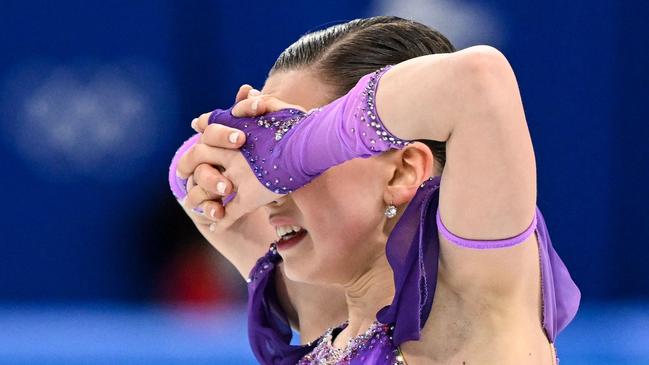
Valieva will go into Thursday’s free skate program as the clear favourite to take the gold medal. Just how long she will keep any of the hardware depends on weeks of further inquiries about her Christmas Day drugs test, including opening of the B sample, and then possibly months of appeals.
On Tuesday night Valieva raced past reporters quicker than a series of dance steps on the ice with a burly Russian team official and refused to talk. Russian journalists didn’t ask any questions, but took photos on their mobile phones.
Skating officials even extended the cut off of skaters allowed to progress through to the free skate program from 24 to 25, lest Valieva is ultimately found to be a doper and disqualified from the Olympic results.
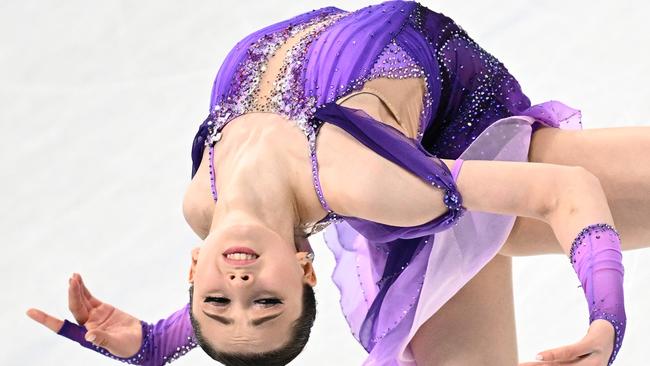
The Court of Arbitration for Sport has ruled she can compete while further investigation is conducted because she is aged under 16 and a six week delay to be told of the test result by a Swedish laboratory left her with little time to fight the drugs accusations.
British skater Natasha McKay, when asked if she had sympathy for Valieva, said pointedly “I have sympathy for whoever will be on the podium, and they won’t be receiving their medals. I feel like that is quite sad, the most important part of getting a medal would be to stand on the podium and they won’t get that … I wish it would be a level playing field.’’
American Mariah Bell said “it don’t have anything to say about the situation, other than I am a huge advocate for clean sport, and I am 25 and I am really proud of how I have led my career up to this point.’’
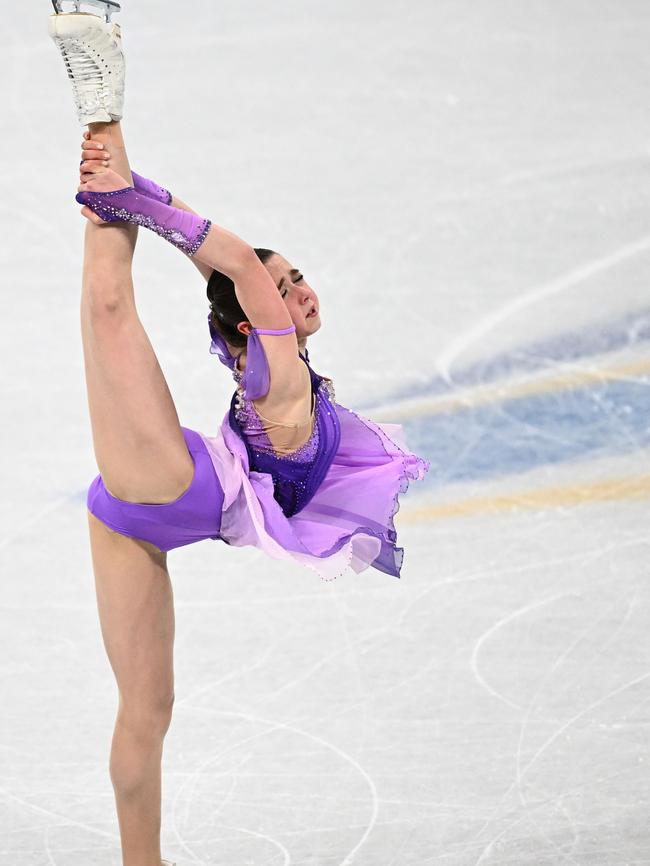
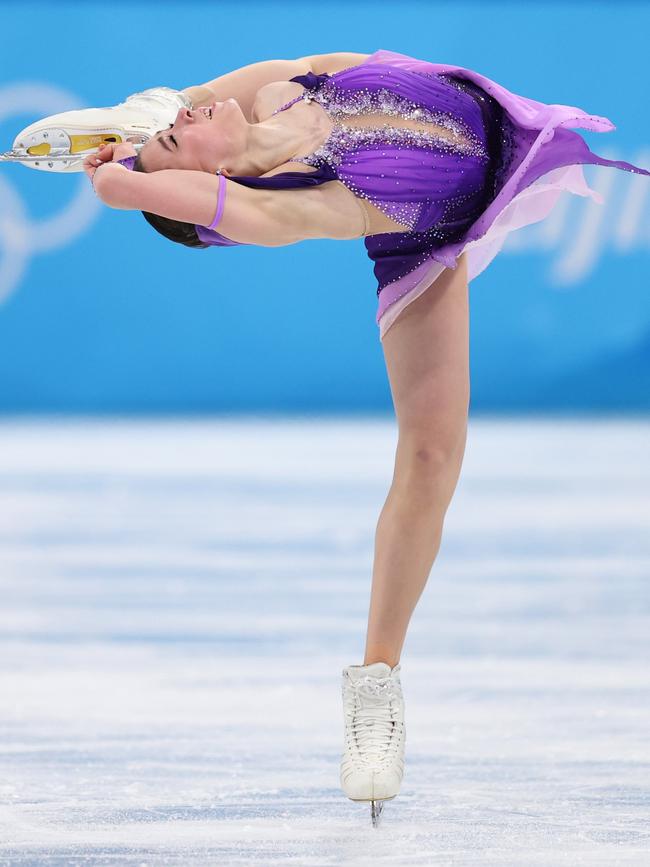
Bell referred to the bizarre case involving her friend Jessica Catalang who spent eight months fighting to clear her name when some chemicals found in makeup triggered a positive test for a banned substance 4-CPA. Other skaters have also sympathised with Catalang who faced a long time clearing her name, compared to Valieva’s almost instant CAS decision.
PyeongChang Olympic bronze medallist Mirai Nagasu tweeted:” Jessica was suspended for months. Protocol can change from athletes to athletes?? No.”
Bell said she was sad for her teammates in the teams competition who are still waiting to see if they will be awarded the gold medal if winners Russia are disqualified. “It seems wrong to punish people who have done things the right way,’’ she said.
One of the American skaters waiting for that teams medal ceremony, Karen Chen said she was distressed not to be on the podium during the Games period and argued that there should be some sort of ceremony, even without awarding of medals.
“We should be able to get up there with our ceremonial uniforms,’’ Chen said.
Meanwhile Bell advocated raising the age to compete in the sport.
Australia’s Kailani Craine said she was trying to focus on herself, and not the swirling controversy. But Craine pulled out of her first triple lutz in the short program.
Craine said the ongoing Valieva controversy had not impacted her preparation nor her effort, but she was upset at not being able to progress through to the free skate, having finished in 29th spot.
“I have never been so heartbroken in my life,’’ she said. “There is already so much pressure on trying to put your best performance out there at these Games so there is no room in my mind to think about anyone else’’.
HOW VALIEVA’S RIVALS REACTED
Figure skaters up against Russia’s Kamila Valieva, who came top in the short program on Tuesday despite testing positive for a banned substance, said they are determined not to let the scandal ruin their own Olympics.
Fifteen-year-old Valieva was favourite for gold going into the Beijing Games, but a week into them it emerged she had tested positive in December for trimetazidine, which boosts endurance.
The Court of Arbitration for Sport (CAS) on Monday ruled that she could carry on competing in the Chinese capital, although that does not mean that the Russian has been cleared of doping and could still face punishment at a later date.
Asked about the CAS ruling after Tuesday’s competition, the United States’ Alysa Liu said: “The court made that decision, I can’t change it.
“I don’t know every detail of the case but from the big picture, obviously a doping athlete competing against clean athletes is not fair,” the 16-year-old added.
Liu’s father had described the skating system as “obviously rigged” to US media on Monday, and said he would not have encouraged Liu to become a skater had he realised this earlier.
Japan’s Kaori Sakamoto, who came third in the short program behind Valieva and her Russian teammate Anna Shcherbakova — who declined to comment on the doping issue — said she was concentrating on herself.
“Do I feel sorry for her? I don’t think so, I wouldn’t say so …” said a visibly uncomfortable Sakamoto when asked if she felt sympathy for Valieva.
“How do I say this … I’m focusing on the sport, on the competition, and at the moment I’m actually trying not to think of things like that.” Mariah Bell of the United States said the affair was “obviously a very touchy subject”.
“I can only speak for myself and I advocate for clean sport,” she said.
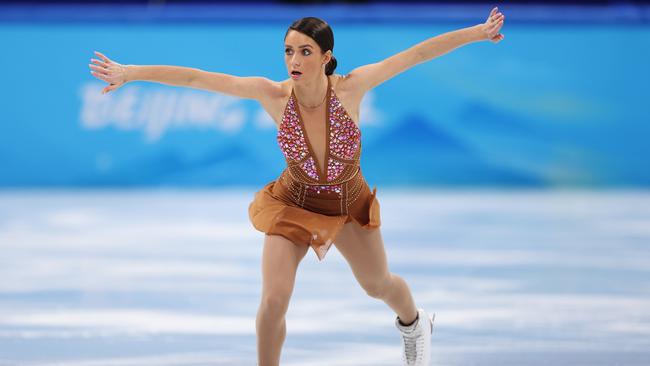
Britain’s Natasha McKay was more blunt.
“Obviously it is not a level playing field and at every sport it should be a level playing field, and we don’t get that opportunity here,” she said.
“But that is a decision they’ve made and obviously we have to stick with that.” After her performance a tearful Valieva did not stop to talk to reporters and took no part in the press conference.
A spokesman for the Russian Olympic Committee said she was not feeling well. “We decided to send her to the Olympic Village as quickly as possible,” Konstantin Vybornov said.
The International Olympic Committee (IOC) has said that if Valieva places in the top three at the end of the singles competition on Thursday, there will be no medal ceremony.
The teenager led the Russians to first place in last week’s team event but those medals will not be awarded at the Games either until the doping case is settled.
Karen Chen, who won silver with Team USA, said that decision was “definitely disappointing”.
“I really was looking forward to being on the podium with my teammates, and just sharing that moment,” she said.
“But what can we do?” she added. “It’s out of our control.” Canada, who came fourth, could stand to benefit if the Russians have the title taken away, but team member Madeline Schizas said it wasn’t her place to comment, saying her job was to “focus on herself”.
“I can’t let anything outside my control derail me,” she said. Alexia Paganini, competing for Switzerland, said that she had sympathy for Valieva.
“I definitely feel sorry for her,” she said. “She is pretty much a product of the adults around her.” But she added: “Rules are rules and they should be followed.”
TEEN OLYMPIAN’S BIZARRE EXCUSE FOR POSITIVE DRUG TEST
Valieva earlier told court officials that the banned drug found in her sample could have been a mix up with her grandfather’s heart medication.
In the first details to emerge from the most contentious Olympics decision, where Valieva was cleared on Monday to compete in the Beijing Olympics women’s individual skating program, the 15 year old Russian claimed, via a video link hearing to the Court of Arbitration, that her doping positive was inadvertent.
Experienced International Olympic Committee member Denis Oswald – who headed the IOC’s investigation into the Russian systemic cheating at the Sochi 2014 Olympics – told News Corp that one of the reasons the Russian Anti Doping Agency rowed back on its suspension of Valieva was because of her age as well as her excuse.

He said: “I don’t know if the (successful) argument was this contamination happened with a product that her grandfather was taking’’. There were no further details about how Valieva could have consumed her grandfathers’s medication.
The Russian publication Pravda reported the 15-year-old’s mother Alsu Valieva and her lawyer Anna Kozmenko told CAS that Valieva’s grandfather has an artificial heart and the skater may have drunk from the same glass. The grandfather takes Valieva to training most days, and the court was told that he uses the trimetazidine when he “hears noises in his heart’’.
But doping experts have cast doubts upon such a suggestion saying the small amount of residue left on a glass would not produce a positive test result. The drug is encased film-coated tablets or capsules and dissolves in the stomach.
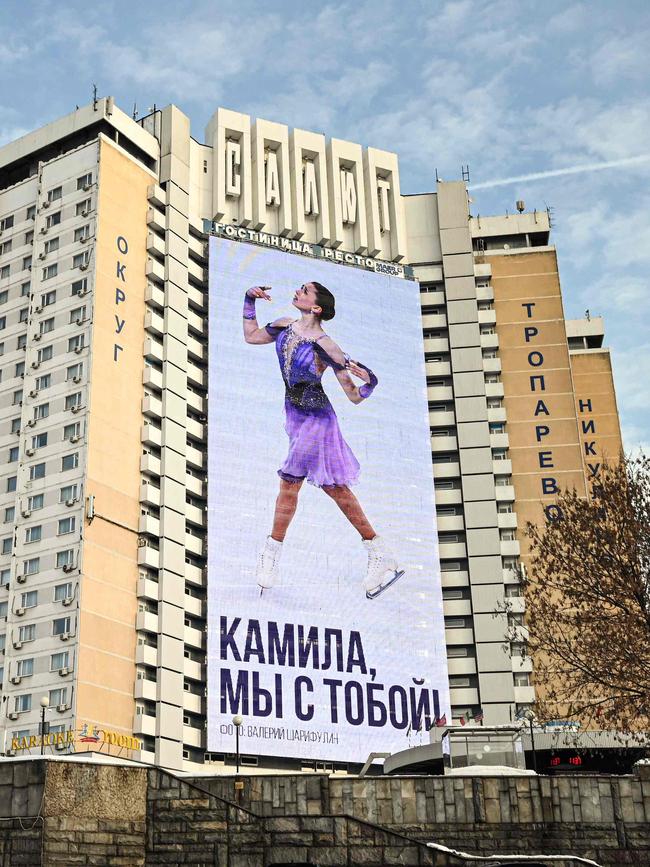
Valieva has told Russian media that she is “emotionally tired’’. She said the CAS hearing took seven hours, with one break for 20 minutes.
“I was sitting and watching. It was very difficult. Apparently, this is one of the stages that I have to go through,” Valieva said.
Oswald said that Valieva “presented elements which brought some doubts about guilt.”
He added: “And also she was in a very situation that the Olympic Games take place only every four years and she would miss the competition, the damage could not be repaired. Therefore they felt she must be allowed to compete with a consequence that if at the end it’s a doping case she will lose the (Olympic team gold) medal that she has won, and possibly what she will win (in the singles competition).”
Oswald said that Olympic officials are unable to prejudge the ongoing court decisions, but pointed to the WADA code which would see an athlete suspended, even if not guilty, because the prohibited substance is in the body at the time of competition.
He denied that the IOC had lost control of its own Olympic Games by outsourcing doping decisions to the Independent Testing Agency and the CAS, saying that the IOC had been heavily criticised for having conflict of interests when it controlled the process.
But Oswald also suggested that other competitors could lodge protests that Valieva was being allowed to compete.
Valieva, who tested positive for a banned heart medication trimetazidine on Christmas Day was given the OK by the Court of Arbitration for Sport in a high profile verdict that raises more questions than answers.
The Olympic bosses were reeling in a press conference on Tuesday ahead of Valieva’s Olympic appearance, with repeated questions from the international media about the fairness of allowing an athlete with a suspected positive drugs case to take part, and the softness being afforded to the Russians, who have previously ripped apart the integrity of the Olympics.
Oswald said he didn’t believe the Valieva case was a follow on from the highly sophisticated state sponsored doping at the Sochi Olympics, where Russian’s urine samples were swapped for clean samples through a mousehole in the laboratory, and that Russian athletes were given a cocktail of three different steroids mixed with whiskey to consume.
“It doesn’t seem to be the case here,’’ said Oswald, explaining that the Sochi cheating was “big, involved the Russian state and a lot of different organisations and a large number of athletes’’. He added:”I am cautious saying it (is a one-off) but that is my impression.’’



